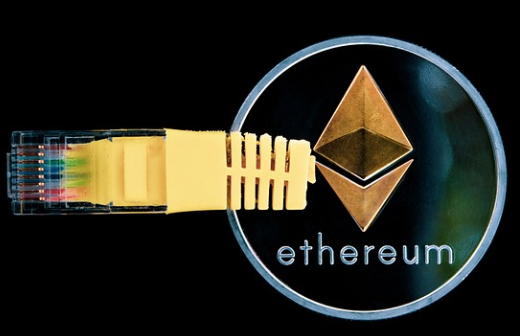フィアット通貨
仮想通貨
"" の結果はありません
検索に一致するものが見つかりませんでした。別の用語でもう一度お試しください。
Permissioned vs. Permissionless Blockchain: What Are the Differences?
Distributed ledger technology (DLT), often referred to as blockchain, is a new way of keeping records. It involves recording transactions, authentications and interactions across a network and having them verified by multiple sources instead of a single central authority. Here comes the question: have you ever thought about the type of blockchain you're using beyond just PoW vs PoS? As a matter of fact, each blockchain can actually be classified as either permissioned or permissionless.
What Is Permissionless Blockchain?
Permissionless blockchains, sometimes referred to as trustless or public blockchains, are open networks that allow anyone to participate in the consensus process used to validate transactions and data. These types of blockchains are widely known, as anyone can use and run them, as well as join the network and validation process. Examples of this type of blockchain include Bitcoin and Ethereum.

What Is Permissioned Blockchain?
In comparison to Permissionless Blockchains, permissioned blockchains (also known as private blockchains or permissioned sandboxes) are restricted networks in which selected individuals, often members of a consortium, take part in consensus and data validation. Access to a permissioned blockchain is strictly granted; these networks are mainly used within private entities, such as companies and organizations.

What Are the Difference between Permissioned Blockchain and Permissionless Blockchain?
Permissionless blockchains are characterized by full transparency of transactions, open source development, anonymity (with some exceptions), the absence of a central governing authority, and the use of tokens and other digital assets to incentivize participation.
Different from Permissionless blockchains, Permissioned blockchains are characterized by controlled transparency based on the objectives of the participating organizations, development by private entities, the absence of anonymity, and the removal of a central authority, replaced by a private group that has the authority to make decisions.
Pros and Cons of Permissioned & Permissionless Blockchain
- Pros of Permissionless Blockchain: Decentralization of a larger scope is enabled by permissionless blockchains, allowing a much wider range of participants to access the network. This also brings with it a high level of transparency, which accelerates the process of reconciliation between unknown parties. Furthermore, the broad accessibility and participation of users from various locations and nationalities make censorship much more difficult to achieve. Finally, robust security is also a feature of these networks; since there is no single repository to target, it is very challenging to corrupt 51% of the network to undermine the consensus mechanisms.
- Cons of Permissionless Blockchain: The resource-intensiveness of network-wide verification of transactions results in poor energy efficiency, lower performance and scalability, and less privacy and user control over information.
- Pros of Permissioned Blockchain: A permissioned blockchain provides scalability since it is run by an entity with the ability to manage validators. This makes it possible to implement upgrades quickly. Furthermore, this type of blockchain can be customized for specific applications, which increases its efficiency. Moreover, the blockchain operator can decide the degree of transparency the network should have based on its purpose. Lastly, the invitation system allows for control of who can access the blockchain.
- Cons of Permissioned Blockchain: The centralization of power in a permissioned blockchain means that decisions are usually made by a central entity or a few validators chosen by the blockchain's owner, and not by all stakeholders. This makes the blockchain less secure and more vulnerable to attacks. It also increases the risk of censorship if the validators or the blockchain operator agree to manipulate information on the blockchain.
What Are the Use Cases of Permissioned and Permissionless Blockchain?
Permissionless and permissioned blockchain architectures both offer similar values, but their differences make them more suitable for certain uses and less suitable for others.
Applications with a strong financial component or that require a high level of decentralization often utilize permissionless blockchains, such as digital asset trading, crowdfunding, and donations, as well as distributed file storage like blockchain storage.
However, permissioned blockchains have opened the door to new applications that require privacy and security, such as tracking the origin of a supply chain, settling claims, and verifying identities.
If you're looking to create a service open to everyone, a permissionless blockchain could be the right choice. However, you don't necessarily have to follow the standard set of principles and goals associated with permissionless blockchains, as you could also make it centralized and permissionless. Additionally, you can choose to add more features related to privacy if you wish. On the other hand, if you are looking to set up a blockchain in a private environment, such as a business or government setting, a permissioned blockchain would be more suitable. You don't have to follow the typical characteristics associated with permissioned blockchains either; it could be completely transparent and open to the public.

Closing Thoughts
Both Permissioned and Permissionless Blockchains are a type of distributed ledger technology(DLT). In the long term, DLT should not be seen as a one-size-fits-all remedy for all IT problems, nor should businesses be swayed by the hype surrounding blockchain and indulge in experimentation for its own sake. Rather, DLT should be regarded as a selection of technological components and concepts that can be chosen and used in an appropriate and judicious manner.
Stay tuned to CoinCarp Social Media and Discuss with Us:
Up to $6,045 Bonuses
Sponsored
Join Bybit and receive up to $6,045 in Bonuses! Register Now!